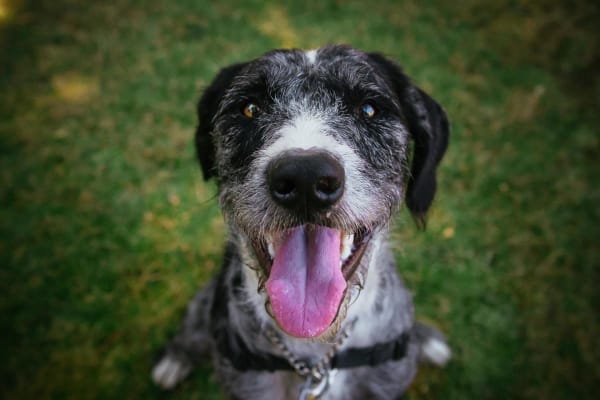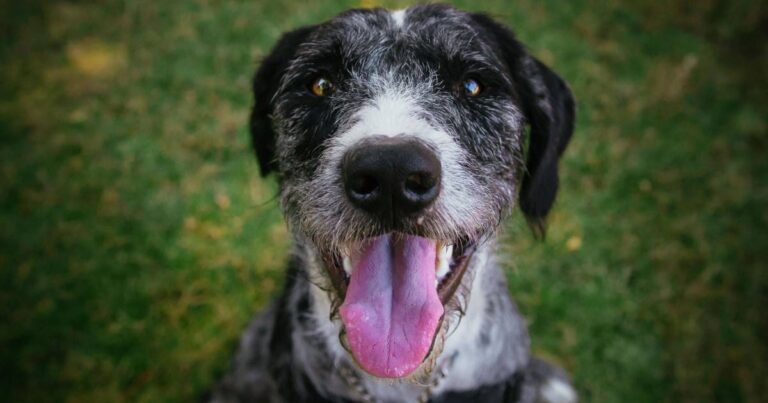If your dog is suddenly clingy, it could be a sign of anxiety, stress, or an underlying health problem. Dogs are social animals and naturally form strong bonds with their human companions, so it’s normal for them to want attention and affection.
However, if your dog’s clinginess is out of character, it’s important to consider other factors that may be contributing to their behavior. Changes in routine, boredom, illness, separation anxiety, or even fear can all cause a dog to become clingy.
If you’re concerned about your dog’s sudden clinginess, it’s best to consult with a veterinarian to rule out any potential health issues and address their needs accordingly.

Credit: www.embracepetinsurance.com
Understanding Clingy Behavior In Dogs
If your dog is suddenly clingy, it could be a sign of anxiety, stress, or an underlying health issue. Dogs are social animals, so it’s normal for them to seek attention and affection from their human companions. However, if the clingy behavior is out of character for your dog, it’s best to consult with a vet to rule out any potential health problems.
Has your dog suddenly become more clingy than usual? While it’s perfectly normal for dogs to seek attention and affection from their human companions, excessive clinginess can indicate an underlying issue. Understanding why your dog is displaying clingy behavior is the first step towards addressing it effectively.
There are several factors that can contribute to a dog’s clingy behavior:
- Separation anxiety: Dogs with separation anxiety may become overly attached to their owners, fearing that they will be left alone.
- Illness: If your dog is feeling unwell, they may seek extra reassurance and comfort from you.
- Stress: Dogs can become clingy in response to stressful situations, such as changes in their environment or routine.
- Age: Older dogs may exhibit clingy behavior as they become more dependent on their owners.
- Boredom: Dogs who are not mentally or physically stimulated enough may seek attention as a form of entertainment.
- Heat: Female dogs in heat may display clingy behavior due to hormonal changes.
- Routine changes: Any significant changes in your dog’s daily routine can cause them to seek extra reassurance from you.
- Clingy dog breeds: Some dog breeds are naturally more prone to clinginess and may require additional attention.
- Fear: Dogs may become clingy if they sense fear or anxiety in their surroundings.
Recognizing the signs of clinginess in dogs can help you understand whether your furry friend is exhibiting this behavior:
- Following you everywhere: If your dog seems to be attached to your hip and follows you around constantly, it could be a sign of clinginess.
- Demanding attention: Dogs may become more vocal or paw at you to get your attention.
- Restlessness: Clingy dogs may struggle to settle down and constantly seek your company.
- Anxious behaviors: Excessive panting, trembling, or pacing can indicate that your dog is feeling anxious and clingy.
- Increased need for physical contact: Clingy dogs may seek more physical contact, such as leaning on you or sitting on your lap.
If your dog’s clingy behavior is becoming a concern, here are some steps you can take to address it:
- Consult a veterinarian: It’s important to rule out any underlying health issues that may be causing your dog’s clingy behavior.
- Establish a routine: Dogs thrive on consistency, so creating a predictable routine can help reduce anxiety and clinginess.
- Provide mental and physical stimulation: Engage your dog in activities that challenge their mind and body to prevent boredom and excess energy.
- Practice gradual separation: Gradually desensitize your dog to being alone by gradually increasing the time they spend away from you.
- Use positive reinforcement: Reward your dog for independent and calm behaviors and gradually reduce attention for clingy behaviors.
- Consider professional training: Enlisting the help of a professional dog trainer or behaviorist can provide you with additional strategies specific to your dog’s needs.
Remember, addressing clinginess in dogs requires patience and consistency. With proper understanding and guidance, you can help your dog feel more secure and confident in their own company.
Causes Of Clinginess In Dogs
Dogs are social animals, and they have evolved tight bonds with their human companions, so it’s totally normal for your dog to want your attention and affection. However, if your dog is suddenly clingy, it may be a sign of a deeper issue. Here are a few common causes of clinginess in dogs:
Separation Anxiety
Separation anxiety is a common cause of clinginess in dogs. Dogs with separation anxiety become excessively needy and clingy when their owners leave. They may exhibit behaviors like following you around constantly, exhibiting distress when left alone, and destructive behavior when left unattended.
Health Issues
It’s essential to consider your dog’s health when they suddenly become clingy. Dogs may display clingy behavior as a result of an underlying health problem. If your dog is clingy and also showing other signs of illness, such as decreased appetite or lethargy, it’s crucial to consult your vet for a proper diagnosis and treatment.
Changes In Routine Or Environment
Changes in routine or environment can also trigger clingy behavior in dogs. Dogs thrive on stability and routine, so any sudden changes like a new family member, moving to a new house, or a disruption in their schedule can cause them to seek extra comfort and reassurance from their owners.
Additionally, clinginess in dogs can be influenced by factors such as stress, boredom, heat, fear, and even age. It’s essential to observe your dog’s behavior carefully and address any underlying issues that may be causing their clinginess.
Signs Of Clinginess In Dogs
If your dog is suddenly clingy, it may be a sign of anxiety, stress, or an underlying health issue. Dogs are social animals and naturally crave their owner’s attention and affection, but excessive clinginess can indicate a deeper problem. If you’re concerned, consult with your vet to determine the cause.
When your dog starts exhibiting clingy behavior all of a sudden, it’s important to pay attention to the signs they are displaying. Dogs, known for their social nature, often form strong bonds with their human companions. While wanting your attention and affection is normal, excessive clinginess could indicate underlying issues such as anxiety, stress, or even health problems.Increased Followings
One sign of clinginess in dogs is when they start following you more than usual. Your dog may become your constant shadow, trailing behind you wherever you go. This behavior can be seen as a need for constant reassurance and closeness to their owner. If your dog’s following behavior becomes obsessive or interferes with their normal activities, it may be a cause for concern.Unusual Need for AffectionAnother indicator of clinginess is when your dog suddenly becomes more affectionate than usual. Your furry friend may demand extra cuddles, insist on being petted constantly, or seek physical contact in different ways. This change in behavior could be a way for your dog to seek comfort and reassurance during a time of heightened anxiety or stress.Persistent Attachment
A clingy dog may display persistent attachment to their owner. They may refuse to leave your side, even when you try to create some distance. Your dog may show signs of distress or anxiety when separated from you, becoming restless or engaging in destructive behaviors. This level of dependency can be a sign of separation anxiety, which may require professional intervention to address.Overall, it’s important to observe any sudden changes in your dog’s behavior and seek professional advice if needed. Remember, understanding and addressing the underlying causes of clinginess can help improve your dog’s well-being and strengthen the bond between you and your furry companion.
Credit: www.goodreads.com
How To Address Clingy Behavior
Is your dog suddenly clingy and attached to your hip? While it’s normal for dogs to seek attention and affection from their human companions, clingy behavior can sometimes be a sign of an underlying issue. In this section, we will explore a few strategies to help address your dog’s clingy behavior.
Seeking Veterinary Advice
If your dog’s clingy behavior is unusual or accompanied by other concerning symptoms, it’s important to consult with a veterinarian. Our furry friends can’t tell us when they’re feeling unwell, so it’s up to us to look for any signs of discomfort or illness. A thorough examination by a veterinarian can help rule out any underlying health issues contributing to your dog’s clinginess. They may also provide specific recommendations or treatments tailored to your dog’s needs.
Providing Mental Stimulation
Dogs, like humans, can become bored or restless when they lack mental stimulation. If your dog’s clingy behavior seems to be driven by a need for constant attention, providing mental stimulation can help redirect their focus and alleviate their clinginess. Consider introducing interactive toys, puzzle feeders, or engaging in obedience training sessions to keep your dog mentally stimulated and entertained. Regular exercise and outdoor activities can also contribute to a healthier and more contented dog.
Establishing A Secure Environment
A dog that feels safe and secure in their environment is less likely to exhibit clingy behavior. Make sure your dog has a designated and comfortable space of their own within your home, such as a cozy bed or crate. Creating a predictable routine and offering plenty of positive reinforcement can also help your dog feel secure and less reliant on constant attention from you. Additionally, consider gradually introducing any changes in their routine or environment to minimize stress and anxiety.
By seeking veterinary advice, providing mental stimulation, and establishing a secure environment, you can address your dog’s clingy behavior in a compassionate and effective manner. Remember, each dog is unique, so it may take some trial and error to find the right approach that works for your furry friend. Patience, consistency, and lots of love will go a long way in helping your dog feel secure and confident.

Credit: toegrips.com
Frequently Asked Questions For Why Is My Dog Clingy All Of A Sudden
Why Is My Dog Suddenly Being Clingy?
A dog may suddenly become clingy due to anxiety, stress, or a health concern. They may also seek more attention and affection if their environment or routine has changed. If you notice a sudden change in your dog’s behavior, it’s best to consult with a veterinarian to rule out any underlying issues.
What Does It Mean When Your Dog Is Attached To You All Of A Sudden?
If your dog suddenly becomes more clingy than usual, it could mean they’re feeling unwell or in need of extra reassurance and love. It’s important to consult your vet if you’re concerned about their health. Changes in routine or environment can also cause dogs to seek more attention and affection.
Why Is My Dog Being More Affectionate Than Usual?
There could be various reasons why your dog is being more affectionate than usual. It could be due to a change in their environment, such as a new family member or a change in routine. They may also be seeking comfort or reassurance if they are feeling unwell or anxious.
It’s important to pay attention to any other behavioral changes and consult a vet if necessary.
Why Is My Dog All Of A Sudden Stuck To Me?
A dog being clingy all of a sudden could be due to anxiety, stress, or an underlying health issue. Dogs are social animals and have a strong bond with their humans, so it’s normal for them to seek attention and affection.
If you’re concerned about your dog’s clinginess, consult a vet.
Conclusion
If your dog has suddenly become clingy, it could be a sign of an underlying issue such as anxiety, stress, or illness. Dogs are social animals and naturally seek attention and affection from their human companions. If you notice your dog being more clingy than usual, it’s important to consult with your vet to rule out any health problems and provide the necessary reassurance and love your furry friend may need.
Remember, understanding and addressing the root cause can help your dog feel more secure and balanced.



